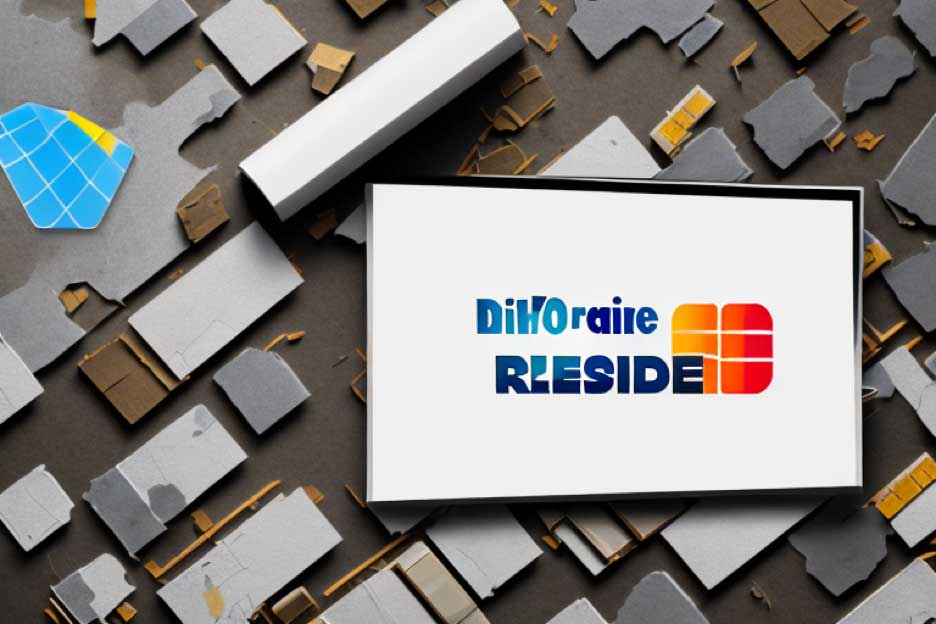Discover effective strategies and expert advice on how to refinance your mortgage with bad credit.
If you’re a homeowner with bad credit and wondering how you can refinance your mortgage, this article is for you. Refinancing can be a smart financial move, allowing you to lower your monthly payments, reduce your interest rate, or consolidate debt. However, having bad credit can make the process more challenging. In this article, we will guide you through the steps and options available to refinance your mortgage with bad credit.
Understanding the Basics of Mortgage Refinancing
When it comes to managing your finances, one important aspect to consider is your mortgage. For many homeowners, their mortgage is one of the largest financial commitments they have. That’s why it’s essential to understand the concept of mortgage refinancing.
What is Mortgage Refinancing?
Mortgage refinancing is a process that allows homeowners to replace their existing mortgage with a new one. It involves paying off the old mortgage and starting fresh with new terms and conditions. Refinancing can be done with the same lender or a different one, depending on your preferences and needs.
Imagine this: you’re driving a car that has served you well for several years. However, as time goes by, you start noticing that it’s not as efficient as it used to be. The same concept applies to mortgages. Over time, your financial situation may change, and you might find yourself in a position where refinancing your mortgage becomes a viable option.
Why Consider Refinancing Your Mortgage?
There are several reasons why homeowners choose to refinance their mortgages. Let’s explore some of the most common ones:
Obtain a lower interest rate:
Interest rates fluctuate over time, and if you took out your mortgage when rates were high, refinancing can help you secure a lower interest rate. This can potentially save you thousands of dollars over the life of your loan.
Switch from an adjustable-rate mortgage to a fixed-rate mortgage:
Adjustable-rate mortgages (ARMs) often start with a lower interest rate, but they can increase over time. If you prefer the stability of a fixed interest rate, refinancing allows you to switch from an ARM to a fixed-rate mortgage.
Access the equity in your home:
As you make mortgage payments, you build equity in your home. Refinancing can provide an opportunity to tap into that equity and use it for various purposes, such as home improvements, education expenses, or debt consolidation.
Consolidate debt:
If you have multiple debts, such as credit card balances or personal loans, refinancing your mortgage can be a way to consolidate them into a single monthly payment. This can simplify your financial life and potentially lower your overall interest costs.
It’s important to note that while refinancing can offer numerous benefits, it’s not suitable for everyone. Before making a decision, it’s wise to carefully evaluate your financial situation, consider the costs associated with refinancing, and consult with a mortgage professional.
Remember, your mortgage is a significant financial commitment, and understanding the basics of mortgage refinancing can empower you to make informed decisions about your home loan.
The Impact of Bad Credit on Mortgage Refinancing
How Credit Scores Affect Mortgage Refinancing
Your credit score plays a crucial role in determining your eligibility for mortgage refinancing. Lenders use credit scores to assess your creditworthiness and determine the interest rate you qualify for. With bad credit, you may face higher interest rates and more limited refinancing options.
When your credit score is low, lenders perceive you as a higher risk borrower. This perception is based on the assumption that individuals with bad credit may have a history of late payments, defaults, or even bankruptcies. As a result, lenders may charge higher interest rates to compensate for the increased risk they are taking on.
Higher interest rates can have a significant impact on your monthly mortgage payments. Even a small increase in interest rates can translate into thousands of dollars over the life of your loan. This means that individuals with bad credit may end up paying more for their refinanced mortgage compared to those with good credit.
In addition to higher interest rates, bad credit can also limit your refinancing options. Some lenders may be hesitant to work with borrowers who have a low credit score, as they may consider them to be less reliable in making timely payments. This can result in fewer lenders willing to offer you refinancing, making it more challenging to find a suitable loan.
The Challenges of Refinancing with Bad Credit
Refinancing with bad credit can be more difficult, but it’s not impossible. Bad credit may limit your options and require more effort to find a lender willing to work with you. It’s essential to be prepared and make improvements to your credit score before applying for refinancing.
One of the challenges of refinancing with bad credit is finding a lender who is willing to take on the risk. Some lenders specialize in working with borrowers who have less-than-perfect credit, but they may have stricter requirements or charge higher fees. It’s important to research and compare different lenders to find the best terms and conditions for your situation.
Improving your credit score is another crucial step in overcoming the challenges of refinancing with bad credit. By paying your bills on time, reducing your debt, and addressing any errors on your credit report, you can gradually improve your creditworthiness. This will not only increase your chances of getting approved for refinancing but also help you secure better interest rates and loan terms.
Another option to consider is working with a mortgage broker who specializes in helping borrowers with bad credit. These professionals have access to a network of lenders and can help you navigate the refinancing process more effectively. They can also provide guidance on improving your credit and finding the best refinancing options available to you.
It’s important to remember that refinancing with bad credit may require more time and effort compared to borrowers with good credit. However, with careful planning, perseverance, and a commitment to improving your credit, you can overcome these challenges and take advantage of the benefits that mortgage refinancing can offer.
Steps to Refinance Your Mortgage with Bad Credit
Evaluating Your Credit Score
The first step in refinancing with bad credit is to evaluate your credit score. Obtaining a copy of your credit report is essential to understanding your current financial standing. Once you have your credit report in hand, it’s time to carefully analyze it for any errors or negative items that could be impacting your score.
Take a closer look at each entry on your credit report and verify its accuracy. Sometimes, there may be mistakes or outdated information that can be disputed and removed from your report. This can significantly improve your creditworthiness and increase your chances of getting approved for a mortgage refinance.
Additionally, identifying any negative items on your credit report is crucial. These negative items, such as late payments or collections, can have a detrimental effect on your credit score. By addressing these issues head-on, you can take steps towards improving your creditworthiness and increasing your chances of securing a favorable refinancing option.
Improving Your Credit Score for Refinancing
While improving your credit score won’t happen overnight, there are several steps you can take to start rebuilding your credit. One of the most important factors in determining your credit score is your payment history. Making consistent, on-time payments for all your bills is essential to demonstrate your financial responsibility.
Another aspect to consider is your debt-to-income ratio. Lenders assess your debt-to-income ratio to determine your ability to repay the loan. By reducing your debt and increasing your income, you can improve this ratio and make yourself a more attractive candidate for refinancing.
It’s also crucial to avoid new credit inquiries while you’re in the process of refinancing. Each time you apply for new credit, it can temporarily lower your credit score. By refraining from applying for new credit, you can maintain stability and prevent any negative impact on your credit score.
Remember, improving your credit score takes time and patience. However, by implementing these strategies consistently, you can gradually rebuild your credit and increase your chances of obtaining a favorable refinancing option.
Searching for Bad Credit Mortgage Refinance Lenders
When refinancing with bad credit, it’s crucial to work with lenders who specialize in providing loans to borrowers with less-than-perfect credit. These lenders understand the unique challenges you face and may be more willing to work with you to find a suitable refinancing solution.
One reputable mortgage broker in Canada that can assist you in finding suitable bad credit mortgage refinance lenders is Citadel Mortgages. With their experienced brokers, Citadel Mortgages has a deep understanding of the lending landscape and can help you navigate through the complexities of refinancing with bad credit.
By partnering with a mortgage broker in Canada like Citadel Mortgages, you can gain access to a network of lenders who are more open to working with individuals with bad credit. These lenders may offer specialized refinancing options tailored to your specific needs, helping you secure a better mortgage rate and terms.
Remember, finding the right lender is crucial when refinancing with bad credit. Working with professionals who have expertise in this area can make a significant difference in your refinancing journey.
Different Refinancing Options for Bad Credit
Refinancing a mortgage can be a smart financial move for homeowners looking to lower their monthly payments, reduce their interest rates, or access their home equity. However, for individuals with bad credit, finding suitable refinancing options can be challenging. Fortunately, there are several programs and strategies available to help borrowers with less-than-perfect credit improve their financial situation.
1. Alternative Lenders
If conventional lenders won’t accommodate your refinancing needs due to bad credit, alternative lenders might be your best bet. These lenders are more lenient with their credit requirements and are willing to work with borrowers with low credit scores. However, their interest rates may be higher than that of traditional banks.
2. Home Equity Line of Credit (HELOC)
A HELOC is a revolving line of credit that uses your home’s equity as collateral. HELOCs are an excellent option for borrowers with bad credit as they typically have lower interest rates than other types of loans. However, you must have a significant amount of equity in your home to qualify for this option.
3. Private Lenders
Private lenders are another option for those with bad credit. They are typically more flexible with their lending criteria but may charge higher interest rates.
4. Bad Credit Mortgage Brokers
Working with a mortgage broker who specializes in bad credit refinancing can significantly increase your chances of success. These brokers have extensive knowledge about the industry and have relationships with various lenders who may be willing to work with you.
The Risks and Benefits of Refinancing with Bad Credit
Refinancing with bad credit can be a daunting task, but it is not without its potential risks and benefits. It is important to carefully consider both sides before making a decision.
Potential Risks of Refinancing with Bad Credit
Refinancing with bad credit carries some risks that borrowers should be aware of:
Higher interest rates and fees:
One of the main risks of refinancing with bad credit is the potential for higher interest rates and fees. Lenders may view borrowers with bad credit as more of a risk, and therefore charge higher interest rates to compensate for that risk. Additionally, there may be additional fees associated with the refinancing process.
Longer loan terms:
Another risk is the possibility of longer loan terms. In order to lower monthly payments, borrowers with bad credit may be offered longer loan terms. While this can provide temporary relief, it also means paying more in interest over the life of the loan.
Impacts on your credit score:
Refinancing with bad credit can also have an impact on your credit score. Applying for a new loan and closing existing accounts can cause a temporary dip in your credit score. However, if you make timely payments on your new loan, it can help improve your credit score over time.
Possible Benefits of Refinancing Despite Bad Credit
Despite the challenges, there can be potential benefits to refinancing with bad credit:
Reduced monthly payments:
One of the main benefits of refinancing is the potential for reduced monthly payments. By securing a lower interest rate or extending the loan term, borrowers with bad credit can potentially lower their monthly mortgage payments, providing some financial relief.
Access to home equity for cash-out refinancing:
Another benefit of refinancing with bad credit is the opportunity to access home equity through cash-out refinancing. This can be particularly useful for borrowers who need funds for home improvements, debt consolidation, or other financial needs.
Opportunity to improve credit over time:
Refinancing with bad credit can also provide an opportunity to improve your credit over time. By making timely payments on your new loan, you can demonstrate responsible financial behavior and potentially improve your credit score. This can open up more favorable loan options in the future.
It is important to carefully weigh the risks and benefits before deciding to refinance with bad credit. Consulting with a financial advisor or mortgage professional can help you make an informed decision based on your specific financial situation.
Preparing for the Refinancing Process
Gathering Necessary Documents for Refinancing
Before applying to refinance your mortgage, gather the necessary documents, including income verification, tax returns, bank statements, and proof of identity. Having these documents ready can help streamline the application process.
When it comes to income verification, lenders typically require recent pay stubs or W-2 forms to ensure that you have a stable source of income. If you are self-employed, you may need to provide additional documentation, such as profit and loss statements or business tax returns.
When gathering your tax returns, it’s important to have at least the past two years’ worth. Lenders use this information to assess your financial stability and determine your eligibility for refinancing.
Bank statements are another crucial document that lenders will request. These statements provide a snapshot of your financial health, including your income, expenses, and any outstanding debts. Make sure to have several months’ worth of statements to give lenders a comprehensive view of your financial situation.
Proof of identity is necessary to verify your identity and prevent fraud. This can be in the form of a valid driver’s license, passport, or government-issued identification card.
Preparing Your Finances for Refinancing
In addition to improving your credit score, preparing your finances for refinancing involves assessing your monthly budget and determining how much you can afford in terms of a new mortgage payment. It’s essential to consider all associated costs, including closing costs and any prepayment penalties from your current mortgage.
Improving your credit score can help you secure a lower interest rate and better loan terms. To boost your credit score, make sure to pay your bills on time, reduce your credit card balances, and avoid applying for new credit in the months leading up to your refinancing application.
Assessing your monthly budget is crucial to ensure that you can comfortably afford your new mortgage payment. Consider your current income, expenses, and any potential changes in your financial situation. It’s important to have a clear understanding of your financial capabilities to avoid any future financial strain.
When refinancing, it’s important to account for closing costs. These costs typically include appraisal fees, title search fees, attorney fees, and loan origination fees. It’s essential to factor in these expenses when determining if refinancing is the right choice for you.
If you currently have a mortgage, check if there are any prepayment penalties. Some mortgages impose penalties if you pay off your loan early. Understanding these penalties will help you make an informed decision about refinancing.
Is Refinancing with Bad Credit Right for You?
Refinancing your mortgage with bad credit can be a viable option, but it’s essential to carefully assess your financial situation and weigh the benefits against the risks. Working with experienced mortgage brokers in Canada, such as those at Citadel Mortgages, can help you navigate the complexities of refinancing and find the best solution for your specific needs and circumstances.
Don’t let bad credit deter you from exploring your refinancing options. Contact Citadel Mortgages today to discuss your situation and take the first step towards a better financial future.

Unexpected costs when buying a home in Canada
When buying a home in Canada, there are several unexpected costs that buyers should be aware of to avoid financial surprises. Some of the key

Considering An Early Mortgage Renewal
Why consider renewing your mortgage ahead of time? Well, one big reason is changes in interest rates. If rates drop, jumping on an early renewal

How to get a HELOC on an Investment Property in Canada
To get a Home Equity Line of Credit (HELOC) on an investment property, you need to follow these steps: 1. Know Your Finances: Estimate the

Expert Advice: Buying a House in Cash in Canada
In exploring the possibility of buying a house in cash in Canada, it’s essential to understand the various aspects that come into play. Here’s a

Average Down Payment for a House in Canada
According to the Canadian Real Estate Association, the average house price in Canada hit around $637,673 in August 2022. This means if you’re looking to

Assumable Mortgages: An In-Depth Look
Assumable mortgages are a unique financing alternative that could potentially save you thousands of dollars and simplify the home-buying process. But what exactly are they





